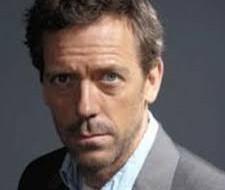Hindsight and wishing you were diagnosed sooner
I wasn't diagnosed on the autism spectrum until I was 25, resulting in many years of uneccessary suffering due to the lack of understanding of my behaviour from those around me including myself.
The sad part is my school identified that I had delayed speech/verbal skills in grade 1, and was sent to an outpatient psychiatric assessment which was pretty rigorous but failed to identity autism.
Looking back, all the pieces fit the autism diagnose and make sense, I just really wish the mental health team assessing me would have diagnosed this. I keep wondering how different my life would have been had they done that.
I don't know if anyone else is in a similar situation but I would guess that many are.
I feel you man, I was diagnosed when I was 30. All my life I thought I was stupid because I struggled so much in school with a "normal" curriculum. I personally wish Autism was a thing when I was little. I was non verbal for most of my early years, had to receive speech therapy when I started talking, and I was diagnosed as legally deaf (my hearing is fine) as a kid. Needless to say, I often think about how much easier things would have been if there was more awareness for autism in the 80s.
_________________
Good guys don't care what place they finish; only jerks do. - Me
I have only recently been diagnosed at 21 and am still going through the adjustment period of realising I don't have to be so hard on myself about certain things.
Part of me wishes I had been diagnosed sooner and part of me doesn't like thinking about my life being any different. I have a younger brother with severe learning difficulties, he had his first statement age 2 and we've always had various support and therapist etc. for him, so in our house, as the only other sibling, I was 'the normal one'. Ironically, hearing stories about me as a child knowing what we know now, it seems a lot more obvious than anyone had thought. Since I was a baby my godmother (who used to look after me) said how she would have to make sure I got a couple of hours undisturbed quiet time apart from the rest of the children. But I can fully understand how it would have been hard to diagnose me as a child because I was quiet, but intelligent, and most people thought I was just shy. And once my brother was born my strange 'maturity' in speech and attitudes was taken as a consequence of having to grow up a little at home and accept thing like that others sometimes needed attention more than you and that everyone had to help out even if they didn't want to etc.
The parts that frustrate me most are that I had quite a lot of contact with doctors growing up, and no-one noticed. When I was 12 we had an extension on our house. The same year I missed about 5 weeks of school with supposed 'glandular fever' because all I could explain to the doctor was that I felt 'funny' (something I'd often had which was likely sensory overload) and couldn't sleep etc. and he thought it sounded like symptoms of a fever and sometimes glandular fever didn't show up on blood tests. I went back to school when my Mum got upset and for a while I would only go a few hours a day before needing to retreat.
There are isolated occasions that feel so obvious now- the day I came home to find my doorway had been moved, and threw a tantrum until I tired myself out crying and when my Dad asked me why I couldn't say, I just knew it was something. There was a day I had a meltdown so bad my Mum took me to the doctor because she didn't know what was going on and neither did I bit I couldn't shop crying and being so angry and out of control and the doctor gave me a short course of anxiety medication. He even asked, in the consultation, if it was normal for me to be unable to make eye contact.
At school I was part of a special pastoral care group because the teachers had noticed I didn't really seem to interact much. I would have occasions of randomly bursting into tears in lessons. I had phases of not being able to write because my hand shook so badly and in sixth form when we suddenly lost the greater structure of lower school I started having speech issues and not being able to eat to the extent I was taken to the doctors again for stomach problems.
I had to leave my first university course because I just could not cope at all, I couldn't regulate meals or manage work or function well at all, and I'd taken myself to the doctor, been forwarded to the mental health team, tried anti-depressants etc. I spent a year going to a psychologist and therapist- who after fifteen minutes said I wasn't depressed, but he didn't know what it was, it was almost neurological. I actually had autism suggested a couple of times, but when the psychologist did the screening test (the same on my brother had had) I scored no because I didn't understand that the question 'can you put yourself in someone else's shoes' meant- can you feel as they do- not- can you logically deduce their likely response based on knowledge gathered. I didn't understand what they meant by empathy, so I didn't know I was getting it wrong.
It wasn't until I went to see a university counsellor on an unrelated matter that he asked if I had ever been assessed for Aspergers. He helped to explain that empathy can actually be really strong with AS etc. and pushed me to get an assessment.
I struggled a lot growing up with wanting someone to tell me if I was just making up my problems and needed to snap out of it or if there was actually something wrong, because it felt like a personal failing that I would struggle with certain things when there was technically nothing 'wrong' with me.
Looking back it's easy to see moment where if you'd been diagnosed life could have been simpler. But I also know that I was very lucky, because my family was supportive and loving, and they all knew I was weird, but they said it with a fondness, they wrote it off as being clever when I gained obscure interests and they never made me feel like I should be 'normal'.
I do feel like there should definitely be more awareness about some of the more high functioning presentations of autism/AS, especially in girls, because too often it can be written off as smart and shy, especially if you are socialised to not make a fuss, as I was inadvertently through having a brother who demanded, through no fault of his own, great attention, and because I helped look after him it didn't cross anyone's mind I might not be 'normal' either. But all you can do about it now if remind yourself you weren't stupid or bad for the things you had problems with.
Personally, I keep joking I'm becoming a stereotype because I've discovered a new love for maths that I always felt stupid at (despite doing well academically) because I struggled with the teaching method, and couldn't accept it was okay to learn a different method that my Mum (a finance director) would show me, because it wasn't the one we were supposed to be learning. So it is liberating in a lot of ways and I find myself reading a lot more science and maths books because now I get that just because you don't get there by the same method a lot of people do, doesn't mean you can't do it.
So yes, in a far too long rambling response, I get exactly what you mean. ![]()
I was diagnosed last year, at age 43. Growing up in the 70s, and attending the public school in our small town, meant that there was no diagnosis, no treatment, no recognition that I was anything but unusual. Asperger's as such wasn't even a diagnosis until I was in my early 20s. Now that I'm older, I wouldn't want to change that core aspect of my identity. But I do deeply regret that my younger self had to cope with so much internal struggle without a clue as to why I felt so alienated.
As others have said, knowing my diagnosis this late in life explains so much that was incomprehensible to me as a child, teen and through my 20s and 30s. If I had known that I wasn't just a loser back then, I think it would have made a huge difference in growing up. I might have gotten to extra help I needed to excel academically instead of just skating by. You can't change the past, but I'm sure my life would have been different.
I really am on the fence about how things might have been if I was diagnosed as a kid rather than as a much older adult. I don't know if I would have gotten any actual help even if they had figured out this was my issue. It was the 1970's. Even kids with minor issues of any sort were not always treated well or given the help they actually needed.
I had some of the same issues with math as a kid. They taught math one way. If that way of doing a problem didn't click with you it was too bad. You had to learn their way of doing the problems. What made it worse was that starting in 2nd grade math was taught in a very rigid fashion with most of the information was conveyed by the teacher at the chalkboard. I likely have an auditory processing disorder and would explain why the math teacher sounded like Charlie Brown's teacher most of the time. If you didn't catch something right away she would get mad. They moved me from the back of the class assuming I couldn't see the board. Then made me get glasses. Then they gave a bunch of kids in the class desk dividers to try to prevent distractions. It really was an epic mess where the kids were blamed for not comprehending the class. A few grades later when we started using alternative methods for learning math it suddenly became less of a problem and I was able to mostly catch up.
Knowing all this by high school would have been very useful. I think I could have better focused on what I wanted to do as an adult if I knew.
The sad part is my school identified that I had delayed speech/verbal skills in grade 1, and was sent to an outpatient psychiatric assessment which was pretty rigorous but failed to identity autism.
Looking back, all the pieces fit the autism diagnose and make sense, I just really wish the mental health team assessing me would have diagnosed this. I keep wondering how different my life would have been had they done that.
I don't know if anyone else is in a similar situation but I would guess that many are.
I definitely found myself in a similar situation when I was younger and used to go to a church school. I was eventually homeschooled which turned out better for me but I wasn't diagnosed with Asperger's until I was 19. I'm currently 23 and I find myself wishing that I had been diagnosed sooner in life. Maybe... maybe then I would've had a better understanding of what was going on and been able to get the proper help.
ASPartOfMe
Veteran

Joined: 25 Aug 2013
Age: 67
Gender: Male
Posts: 36,721
Location: Long Island, New York
Lots of hypothetical's in this thread but if a diagnosis in the 1960's or 1970's came with 25-40 hours a week of ABA, powerful organizations dedicated to wiping out my syndrome and the stigmas of either ret*d or socially awkward savant, as rough as it was not knowing and was rough, it is still was less bad, even much less bad then today. As an mature adult I have some prospective to be able handle the BS, as as kid and teenager it likely would have left me in a very bad state.
I do regret not take the information that came my way in the 1990's and 2000's suggesting I was autistic more seriously. It might have eased or prevented my Autistic burnout.
_________________
Professionally Identified and joined WP August 26, 2013
DSM 5: Autism Spectrum Disorder, DSM IV: Aspergers Moderate Severity
“My autism is not a superpower. It also isn’t some kind of god-forsaken, endless fountain of suffering inflicted on my family. It’s just part of who I am as a person”. - Sara Luterman
I didn't get diagnosed until I was 41. I wish I could have gotten it before I started school. My entire school life was cased in ruins because I/they didn't know what AS was.
When I look back on my past. I notice that most of my problems where sensory related issues. I could never concentrate in class because every little sound and movement was competing for my attention. But the biggest problem with it, was I never knew that I was having issues with sensory over-stimulation. I just assumed that everyone else saw/perceived the world the same way that I did. And my attitude towards it was. If everybody else can do it, so can you. Which of course, was totally false.
AnonymousAnonymous
Veteran

Joined: 23 Nov 2006
Age: 35
Gender: Male
Posts: 72,762
Location: Portland, Oregon
I was diagnosed with "regular" Autism when I was 4. This led to years of emotional and psychological stress for me until I was re-diagnosed with AS at 13. However, I didn't know what Autism was when I was 4.
_________________
Silly NTs, I have Aspergers, and having Aspergers is gr-r-reat!
| Similar Topics | |
|---|---|
| Dating, with hindsight. |
07 Feb 2025, 12:17 pm |
| newly diagnosed |
28 Dec 2024, 4:39 pm |
| I was diagnosed recently. |
22 Jan 2025, 5:57 pm |
| Diagnosed ASD + Executive Dysfunction |
15 Jan 2025, 10:57 pm |











